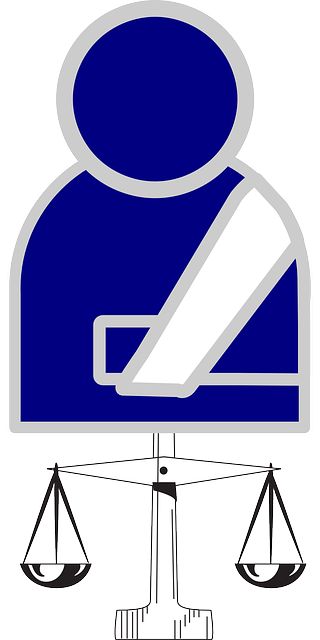Public corruption cases involve regulatory agencies, law enforcement, and prosecutors using administrative law to prosecute officials for bribery, embezzlement, and abuse of power. Administrative Law Judges (ALJs) preside over hearings and deliver verdicts, with appeal processes available to challenge their decisions. Understanding administrative law is vital for appealing ALJ rulings, ensuring fairness, and protecting rights in complex public corruption investigations and trials.
“Public corruption charges have far-reaching implications, shaping governance and public trust. Understanding these charges involves delving into their legal definitions and frameworks, particularly under administrative law. This article explores key aspects, including the role of Administrative Law Judges in corruption cases. We dissect grounds for appealing decisions and the legal resources available. Additionally, it provides insights on evidence requirements and effective defense strategies against corruption accusations, with a focus on navigating Appealing Administrative Law Judge Decisions.”
- Understanding Public Corruption Charges: Definition and Legal Framework
- The Role of Administrative Law Judges in Corruption Cases
- Grounds for Appealing Decision: Legal Recourses Available
- Evidence and Proof Requirements for Successful Appeals
- Strategies for Effective Legal Defense Against Corruption Accusations
Understanding Public Corruption Charges: Definition and Legal Framework
Public Corruption Charges refer to allegations of illegal or unethical behavior by public officials in their capacity as government servants. This includes a wide range of activities such as bribery, embezzlement, misuse of public funds, and abuse of power. These charges are governed by a robust legal framework designed to maintain integrity within the public sector. The primary bodies involved in investigating and prosecuting these cases include regulatory agencies, law enforcement, and independent prosecutors.
Understanding the legal landscape is crucial when navigating high-stakes cases like these. Administrative Law Judges play a significant role in adjudicating disputes arising from public corruption allegations. Their decisions can have far-reaching implications for both individuals and organizations. Those found guilty face severe penalties, including fines, imprisonment, and permanent removal from public service. However, there’s an avenue for appeal, allowing individuals to challenge administrative law judge decisions through established legal channels. Achieving extraordinary results in these complex cases often requires meticulous attention to detail, a deep understanding of the law, and strategic planning throughout all stages of the investigative and enforcement process.
The Role of Administrative Law Judges in Corruption Cases
In cases of public corruption, Administrative Law Judges (ALJs) play a pivotal role in ensuring justice. These judges are responsible for conducting hearings and making decisions regarding allegations of corruption against government officials or businesses with significant public contracts. Their expertise lies in interpreting complex administrative laws and regulations to determine guilt or innocence. The process involves carefully examining evidence, calling witnesses, and applying the law objectively to reach a verdict that upholds integrity within the public sector.
Appealing ALJ decisions is a crucial aspect of this legal framework. Both accused individuals and respective business entities have the right to challenge findings they believe are unjust. This appeals process allows for a second look, ensuring that any potential errors or misinterpretations of facts and laws can be rectified. In navigating these cases, the skills and knowledge of ALJs are instrumental in maintaining transparency and accountability within the philanthropic and political communities, thereby fostering trust among citizens.
Grounds for Appealing Decision: Legal Recourses Available
When facing public corruption charges, individuals have legal avenues to explore if they believe an error was made during their case. One such route is appealing the decision made by an Administrative Law Judge (ALJ). These appeals are crucial in ensuring fairness and providing a second chance for those who feel their rights were violated or that the evidence presented was insufficient.
The process involves reviewing the record, examining legal errors, and considering new evidence if available. A general criminal defense strategy can be employed here, focusing on avoiding indictment and proving innocence. In cases of white-collar and economic crimes, appealing an ALJ’s decision is a significant step to mitigate potential penalties and clear one’s name. This process requires careful consideration and the expertise of legal professionals well-versed in administrative law, ensuring that all grounds for appeal are explored effectively.
Evidence and Proof Requirements for Successful Appeals
When appealing an administrative law judge’s decision regarding public corruption charges, a key aspect is understanding the evidence and proof requirements. The burden of proof lies heavily on the appellant to demonstrate that the original ruling was erroneous. This involves presenting compelling evidence that refutes the initial findings or highlights procedural errors made during the investigation and trial.
Unlike jury trials in respective business sectors, administrative law appeals focus on a review of the record and legal arguments. Appellants must provide an unprecedented track record of similar cases to support their claims of injustice. This includes thorough documentation, witness testimonies, and any relevant laws or regulations that were either misinterpreted or overlooked during the initial proceedings. Such a strategic approach enhances the chances of a successful appeal and ensures fairness in the legal process.
Strategies for Effective Legal Defense Against Corruption Accusations
Facing public corruption charges can be a complex and daunting task. A robust legal defense strategy is crucial to navigate through these accusations successfully. One effective approach involves understanding the nuances of administrative law and its impact on corruption cases. Appealing Administrative Law Judge Decisions can provide a significant leverage point for defendants, allowing them to challenge the evidence and procedures employed during their initial hearings. This process requires meticulous attention to detail, as every step must be meticulously documented and argued.
Additionally, focusing on avoiding indictment through strategic legal maneuvers is another key strategy. Defendants can employ various tactics such as presenting exculpatory evidence, questioning the credibility of witnesses, and highlighting procedural errors. These efforts aim to undermine the prosecution’s case while safeguarding the rights of the accused. A well-planned defense, especially when considering the respective business interests at stake across the country, can lead to favorable outcomes, ensuring a fair trial and potentially minimizing the legal consequences for those wrongly implicated in corruption schemes.
Public corruption charges are complex legal matters that require a deep understanding of administrative law. By examining the role of judges, appealing processes, and evidence requirements, individuals facing these accusations can navigate the system more effectively. Knowing the grounds for appeal and employing strategic defenses are crucial steps in ensuring fairness and safeguarding one’s rights during these challenging times. Stay informed, exercise your legal resources, and remember that a strong defense can lead to positive outcomes in corruption cases.






